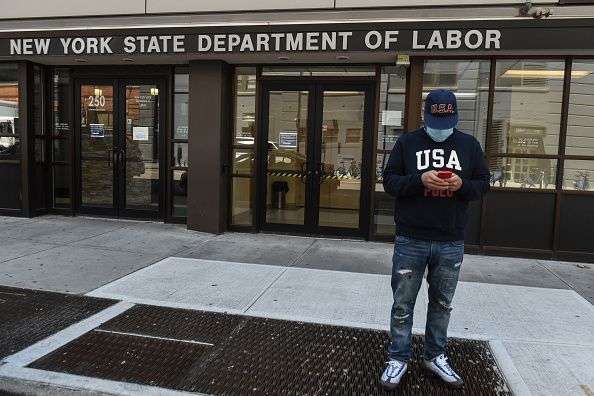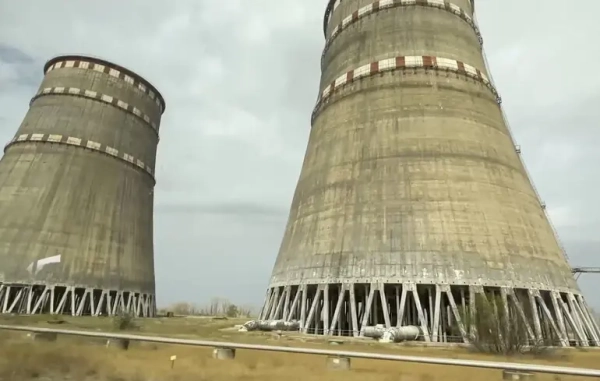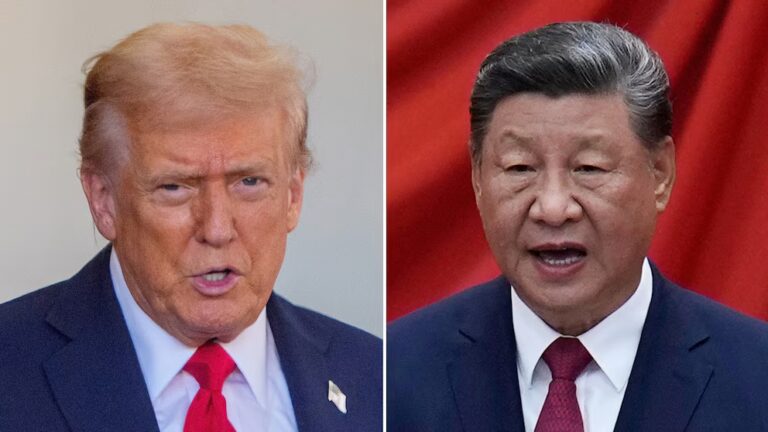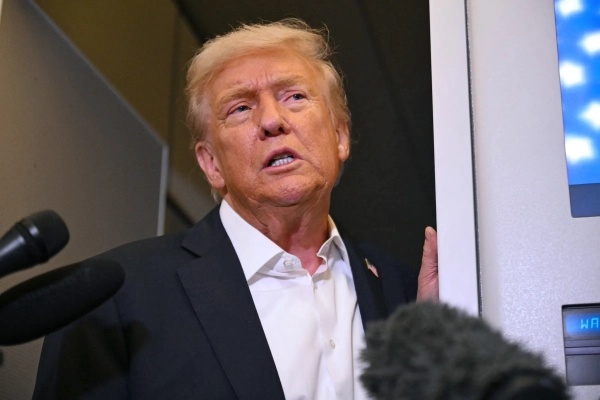
The conventional wisdom is that a bad economy hurts the incumbent president. For that reason, most people assume a pandemic-induced recession will help Joe Biden in the 2020 election.
But the sort of economic collapse we’re seeing right now is very different from what we’ve seen in previous periods of decline, like the Great Recession or even the Great Depression, both of which involved gradual recoveries.
In this case, the long-term damage will be immense, and it will likely be years before we fully recover, but as the economy starts to open back up in the summer months, we might see a rapid surge in economic growth and employment numbers. Historically, we would still be in terrible shape — but the quick rebound could create a fairly optimistic narrative for the Trump White House.
This is the argument Jason Furman, who served as an economist in the Obama administration and is now a professor at Harvard, is making to basically anyone who will listen. As Politico reported two weeks ago, Furman has been sounding the alarm to Democrats behind the scenes, and many are increasingly concerned.
I spoke to Furman by phone about why he thinks “we’re about to see the best economic data we’ve seen in the history of this country,” what that actually means in terms of the overall health of the economy, and what he thinks Democrats should do to counter Trump’s narrative in November.
A lightly edited transcript of our conversation follows.
Sean Illing
Most of the Democrats I’ve spoken to over the last couple months think the economic situation we’re facing is a political disaster for President Trump. You’re not so sure — why?
Jason Furman
I’m not a political forecaster, so I’m not sure of anything politically. But I’m trying to warn people on the Democratic side that they should be thinking about more than just the raw numbers.
Let’s say we have an unemployment rate of 12 percent on Election Day — that’s obviously bad. But if the unemployment rate was very recently at 20 percent and it dropped pretty quickly to 12 percent, that’s a much different situation than if the country had been steadily watching the unemployment grow to 12 percent over a long period of time. Both of these cases are economic disasters, but the first scenario is very different politically because it means we will have had a quarter of enormous, rapid growth.
Sean Illing
In other words, what you’re saying is that we won’t be going from a cataclysmic situation to a very good situation, but we could easily go from a cataclysmic situation to a merely bad situation, and that would give the Trump team a plausible story to tell about how we’re bouncing back economically?
Jason Furman
Yes, exactly. I mean, there’s always a way to spin the numbers, but if it’s the case that in the four months leading up to the election, the job creation numbers are 1, 2, 3, 4 million jobs a month — and there’s a very decent chance of that — that will give them an optimistic narrative to push. They will say, “We reopened the country and it’s working, our economic plan is working. We’re not there yet, we have further to go, but look at the results so far.”
These are the arguments Democrats should expect to hear in any case. And maybe they’ll fall flat on people who are still suffering in the economy — I can’t speak to that. But I suspect a lot of people want a sense of optimism, a belief that we’ve turned a corner economically, so voters could be hungry for this kind of narrative.
Sean Illing
That all sounds plausible enough. Why wasn’t this possibility more apparent to people a couple months ago? Did people just think a V-shaped recovery wasn’t likely because we wouldn’t be able to open the country back up?
Jason Furman
I’ve been talking about this since March. It only just got picked up more widely. My view, by the way, isn’t that we’ll have a perfect V-shaped recovery. What I’m saying is that there will be two parts to the recovery. One part is furloughed workers getting called back to their jobs and businesses that had the lights turned off turns the lights back on. That is very fast and looks V-shaped.
But I still think millions of furloughed workers won’t be called back to their jobs. Many people have been fired outright and not furloughed. And so I think it’ll take years to get the economy back to where it was to start with. It’s just that the easy part of the recovery is likely to happen in the next six months. And the hard part of the recovery is likely to take several years.
Sean Illing
Can you explain why the economic collapse (and recovery) we’re seeing right now is very different from what we saw in the Great Depression or even the Great Recession?
Jason Furman
It took a year and a half for the unemployment rate to rise to 10 percent in the Great Recession. And once it got there, it fell by less than a percentage point a year.
In the possible scenario we’re talking about today, the unemployment rate may get to a peak value around 20 percent. [Author’s note: The latest jobs report, released shortly after Furman and I spoke, showed the unemployment rate actually dropping to 13.3 percent, far better than most experts predicted.] But then I think it’s very likely that you see, at least initially, a much, much faster decline than we saw in the Great Recession.
And the reason is because what we’re seeing now is partly a natural disaster and it’s partly like a financial crisis. And with a natural disaster, people can’t get to work because of the hurricane, but once the hurricane has gone, they all go back to work. Here it will not be they all go back to work; it’ll be maybe half going back to work. But half of 30 million is 15 million, and 15 million people going back to work quickly will look very good and very positive to a lot of people.
Sean Illing
You think the initial rebound could be so intense that we potentially see the best short-term economic data in history?
Jason Furman
One of the highest-profile numbers we get every month is the net number of new jobs we added to the economy. We’ve been collecting this data since 1939. The best jobs number we ever had was in 1983, when there were some months with 1.1 million jobs created. That record is likely to be broken at least one of the months in the next five months. It could easily be broken in several months, and it could be 3 or 4 million jobs.
Now, to be clear, I don’t think that’s impressive when you’ve already shed about 30 million jobs and you get back 6 of the 30 million. We’re still down more jobs than we were in the last major financial crisis. But the headlines, at least for the next few months, will be that we’re creating 3 million or so jobs, and the subheadlines will be that we’re still in a very deep hole.
Sean Illing
And most people don’t read past the headline —
Jason Furman
Right.
Sean Illing
There’s always a possibility that we have a second wave of coronavirus in the fall or winter (to state the obvious, I do not want this to happen). But if it does happen, how could that upend the economic situation?
Jason Furman
Even if there’s a second wave in the fall, I would expect the response to be more differentiated across states, depending in part on how it’s affecting them and depending in part on the ideological views of their governors. I think a number of people who were okay with the lockdown the first time will think, rightly or wrongly, that it didn’t work or that it was excessive. Or they’ll think we had to buy more time for testing, but now we’ve expanded our testing capacities. And so I’d wager that there would be much more resistance to another lockdown.
So while there’s always a chance that we have another national lockdown that could bring us back to where we were in April, I’d say it’s pretty unlikely. April was the absolute worst month for the economy, and everything will be an improvement from there.
Sean Illing
I know you’re an economist, not a political strategist, but I’m curious what kind of counterargument you think the Democrats should make in the event that the economy does bounce back the way you expect it to.
Jason Furman
I think that pointing to the unemployment rate, pointing to the cumulative total job loss, using the pre-pandemic period as your reference point are all important. I also think, separate from arguing over numbers, I would like to see compelling plans for what would actually speed the economic recovery and what would help more families participate in the economic recovery.
And President Trump has his idea about how to have the economy succeed, and it’s largely just reopen everything. And I think it’s important for Democrats to push their argument about what they would do to make the economy better. I certainly think you’ve seen some of that, and I expect you’ll see even more of that.
Sean Illing
If you were advising Biden right now, what would you tell him?
Jason Furman
I’d say the most important thing is to have a forward-looking vision that talks about jobs, talks about wages, and talks about how you’re going to rebuild the economy after the devastation. Don’t count on a referendum on the numbers alone, but make it a debate about the different plans and different visions for the future.
Support Vox’s explanatory journalism
Every day at Vox, we aim to answer your most important questions and provide you, and our audience around the world, with information that has the power to save lives. Our mission has never been more vital than it is in this moment: to empower you through understanding. Vox’s work is reaching more people than ever, but our distinctive brand of explanatory journalism takes resources — particularly during a pandemic and an economic downturn. Your financial contribution will not constitute a donation, but it will enable our staff to continue to offer free articles, videos, and podcasts at the quality and volume that this moment requires. Please consider making a contribution to Vox today.
Sourse: vox.com






